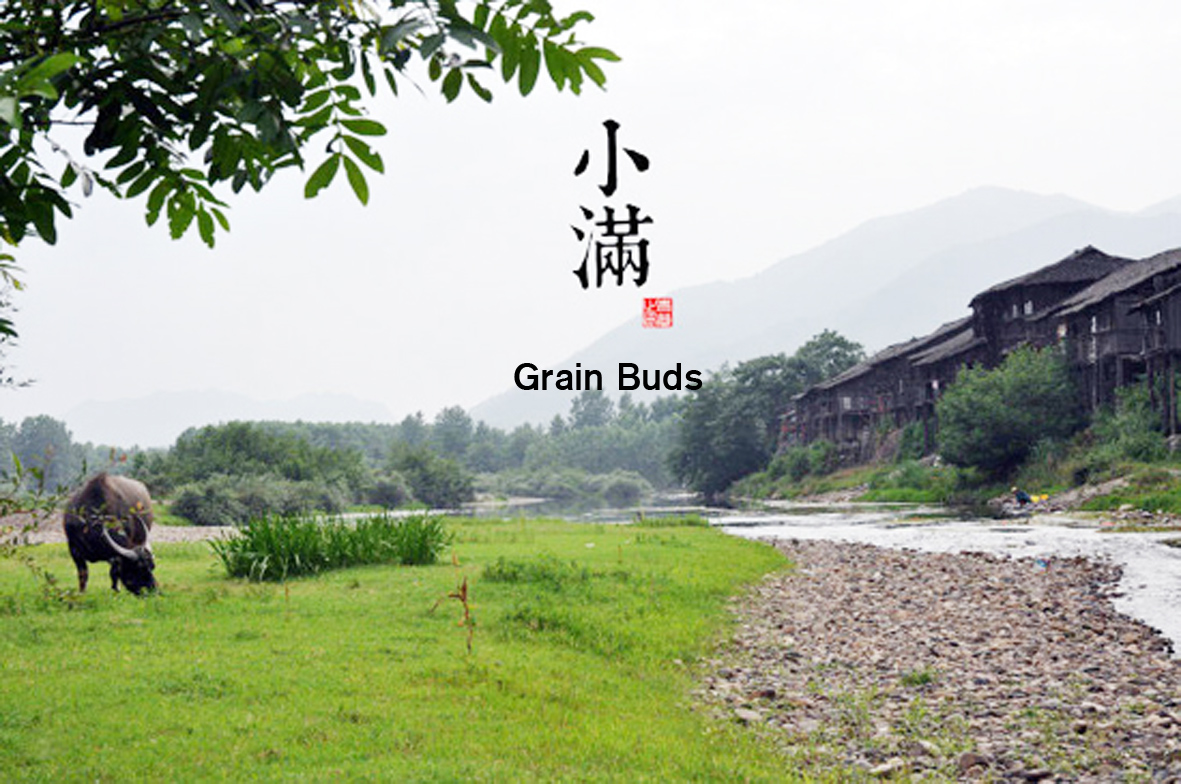The 24 solar terms: part two

In Xiao Man, summer grains grow fuller day by day but are not totally ripe yet.
Qing Ming: Pure Brightness
Qing Ming comes around April 5, when the sun reaches the celestial longitude of 15 degrees. The weather warms and plants are blooming when Qing Ming comes, making it an ideal time to enjoy the outdoors, fly kites and play on the swing. Qing Ming is not only a solar term but is also known as Tomb Sweeping Day in China. Families gather together to tend graves to honor ancestors, passed relatives and friends. This sad sentiment is encapsulated in a famous poem, which says: “A faint drizzle dampens sleeves as Qing Ming draws near.”
Gu Yu: Grain Rain
Gu Yu is the last solar term in spring, when the sun reaches the celestial longitude of 30 degrees. It usually begins around April 20 and ends around May 5. The name “Grain Rain” originates from the saying, “Rain brings about the hundreds of grains.” When this day comes, the amount of rainfall tends to increase, which is very important for the growth of the crops. The term marks that farming season has begun, and farmers become busy with seeding and planting. In addition, Gu Yu is also connected to a tale about a brave man named Gu Yu who saved peony flowers by fighting with demons.
Li Xia: Beginning of Summer
Li Xia comes on May 5 or May 6, when the sun reaches the celestial longitude of 45 degrees. Usually people consider this period to be a time when temperatures begin to rise noticeably, thunderstorms become more frequent, and crop growth enters the peak season. Many crops seeded in spring can be harvested in the summer. It is also the peak season for planting rice. The special custom for the day of Li Xia is to boil eggs for children. It is said eating eggs at the start of summer can prevent children from diseases that are easy to get in summer.
Xiao Man: Grain Buds
Xiao Man is the second solar term in the summer season, representing a period when grains grow fuller day by day but are not totally ripe yet. This day arrives on May 21 or May 22, when the sun reaches the celestial longitude of 60 degrees. It is the driest solar term in the year, and it is important to keep the crops away from the dry, hot wind. In Chinese, “Grain Buds” is called “Xiao Man,” and the Chinese character “Man” means full. Therefore, “Man” refers not only to the budding of grain but also to the amount of rainwater. A farmers’ proverb in southern China says, “If there is not enough rainfall in Grain Buds, farmlands will be dry.”

 PRINT
PRINT CLOSE
CLOSE